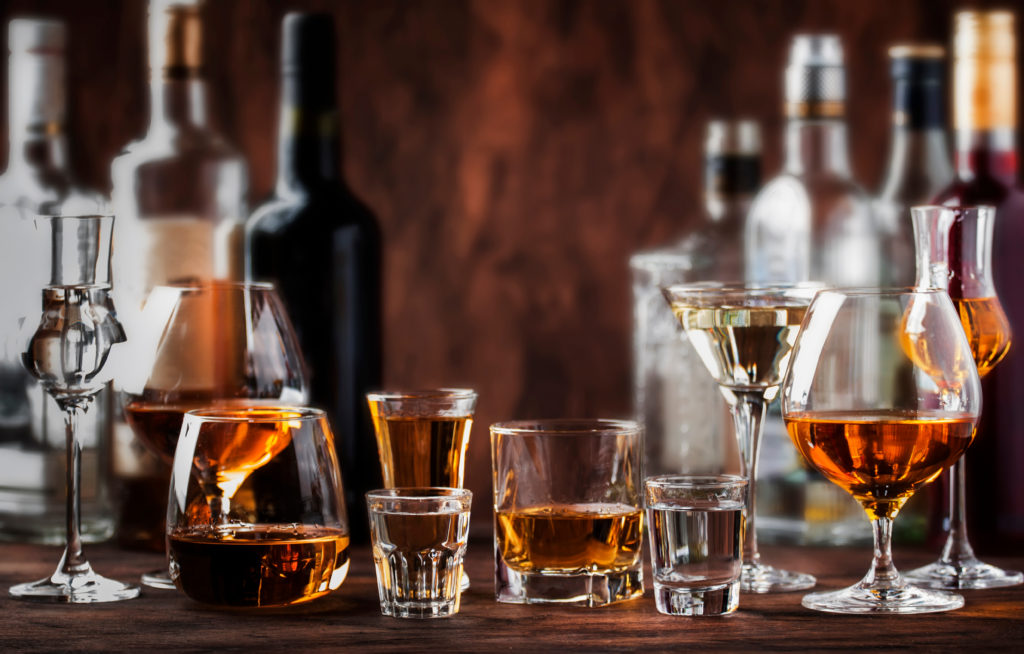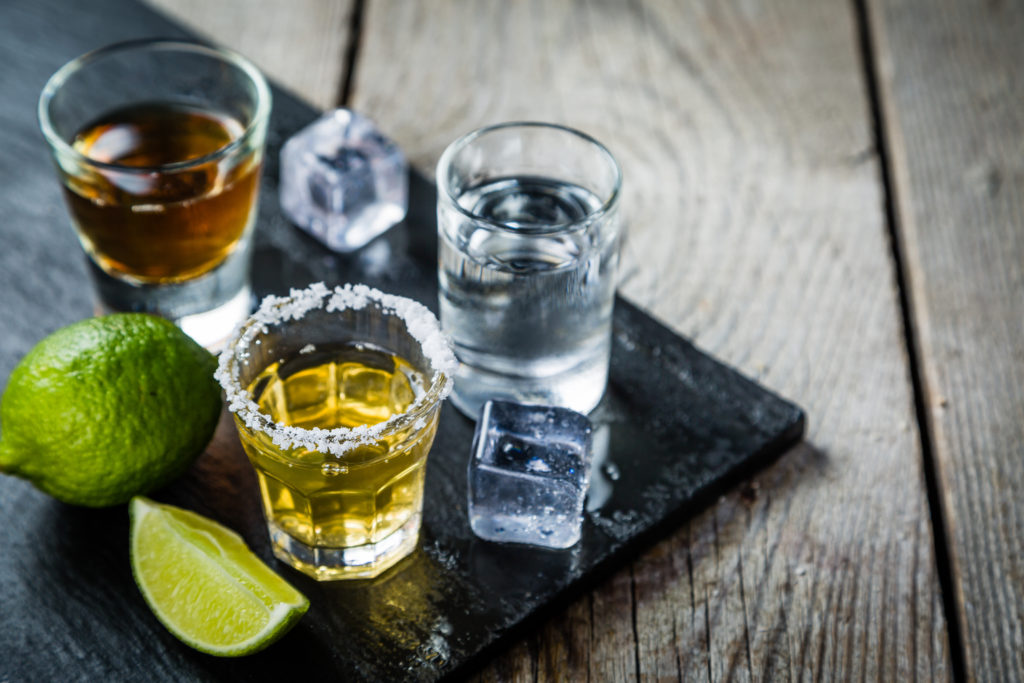ENTER YOUR EMAIL ADDRESS TO UNLOCK
15% OFF
on your first order
Some exclusions apply.
Absorption and the body’s ability to metabolize alcohol is greatly reduced after surgery, which can cause patients to feel intoxicated after only a single drink and in some cases show signs of being drunk after only a few sips.
Alcohol after RNY Gastric Bypass
Unlike your pre-surgery self, you no longer have a larger stomach that holds the alcohol you drink and it can’t intermingle with the food and digestive enzymes, which would normally slow down the release and resulting absorption in the small bowl.
It’s more like pouring the alcohol straight into your small bowel for instant absorption into the bloodstream.
Alcohol after Sleeve Gastrectomy
Sleeve patients aren’t in the clear just because there is no bowel bypass. There are alcohol absorbing consequences to the sleeve gastrectomy as well.
During your surgery, your surgeon removed ~75% of your stomach. This has a direct impact on stomach acid production and, consequently, one particular enzyme in the stomach, which usually begins to digest alcohol, is absent or greatly reduced.
It stands to reason that your small bowel is receiving unfiltered and full-strength alcohol, which puts you at an increased risk for intoxication when compared to someone who has not had the sleeve gastrectomy.
Drinking on an Empty Stomach
It’s been proven that the effects of alcohol and alcohol absorption rates are much stronger and higher when consumed on an empty stomach (instead of drinking after lining the stomach with food).
After bariatric surgery, not only are you unable to eat the same quantities of food, but you’re also on a very restricted calorie diet. This means less food in your stomach which means you’ll be affected by the alcohol faster and more strongly.
Pair this with this with the fact that alcohol is much more potent for bariatric patients and you have the perfect recipe for accidental overconsumption.
There have been reports of bariatric patients getting a DUI after having 1 beer with dinner.
Alcohol Absorption
Contrary to what you may think, most of the alcohol you drink is not absorbed in the stomach. It is absorbed in the small intestine (small bowel). A small, empty stomach allows alcohol to enter the small intestine more quickly. This means that when you drink after bariatric surgery, you will feel the effects of the alcohol faster than you are used to.
You may intuitively think that your 3-5 ounce pouch “holds” less food than your stomach; however, food does not actually sit in the pouch – it passes straight through to the small intestine to be absorbed. And the same is true for alcohol.
This is exactly why Roux-en-Y Gastric Bypass patients and Duodenal Switch patients experience the Dumping Syndrome. The dumping syndrome is a side effect caused by eating high sugar or high-fat foods that get dumped straight into the small bowel. This can happen to Vertical Sleeve Gastrectomy patients as well; however, since there is no bowel bypass it’s less of an issue.
After gastric bypass surgery, you essentially have a direct route for alcohol to travel straight to the small bowel to be absorbed into the bloodstream. This makes the process of feeling the effects of alcohol much faster.
This also means that it takes less alcohol to make you feel intoxicated. If you drink two glasses of wine after bariatric surgery, for instance, you may feel and act as if you’ve had seven glasses before having surgery. Some people who have undergone bariatric surgery report an excessively high blood alcohol level after only one or two drinks.
Alcohol Abuse After Bariatric Surgery
A small percentage of people who have bariatric surgery develop an alcohol use disorder or an AUD. If you’ve had a problem with alcohol in the past, there is also a risk of experiencing a relapse from the stress of surgery.
Most surgeons will not perform surgery on someone with an AUD who is actively drinking. They usually require you to get substance abuse treatment and abstain from alcohol for at least six months.
For now, concrete reasons are unknown; however, there is strong evidence that shown the increased risk of developing alcohol related misuse/dependencies post surgery.
What’s particularly interesting about alcohol use habits after bariatric surgery is that AUD doesn’t manifest itself until 2+ years after surgery. This means that during the first year, as a whole, bariatric patients are enjoying alcohol responsibly (or ideally abstaining from it). But once year 2 comes around the reports of AUD in bariatric patients increases.
Alcohol and Weight Loss After Bariatric Surgery
It’s a popular belief that alcohol (and carbs) make you gain weight and will dash any hopes of reaching your goal weight after bariatric surgery.
Luckily, that’s not entirely true for both alcohol and carbs – but we’ll focus on alcohol. Alcohol alone is not enough to cause you to gain weight, in fact our human bodies cannot physically store alcohol as body fat. It can’t do it, so how is it that alcohol has a reputation for causing major weight loss plateaus?
What alcohol does do, is it prohibits your body’s ability to burn fat for energy.
This means that when your body has alcohol coursing through its veins, it’s #1 job is to rid itself of the poison and detox the body first and foremost. The consequence is that it puts most other metabolic functions on hold – like burning body fat for fuel, or metabolizing the food you’ve just ate as energy.
What this means is that when food is in the presence of alcohol, the food you’ve eaten is much more likely to get stored as body fat while your body eliminates the alcohol.
The short version – it’s not necessarily the calories of alcohol that make you gain or retain weight, it’s the food that you eat with it that is more likely to get stored as fat in the presence of alcohol.
Calories in Alcohol
That said, alcohol does certainly contain calories – surely you’ve heard the term “empty calories.” This means that alcohol contains calories but it doesn’t contain any beneficial nutrients to the body.
When weight loss is the goal, it’s best to make your calories count. Choose foods that will keep you full and feeling well during your diet. For example, a standard can of beer contains ~160 calories. That represents 40 grams of protein, 40 grams of carbohydrates or 18 grams of fat.
You’ll be much, much happier choosing 160 calories of food when dieting for weight loss.
Calories in your favorite drinks
[table id=33 /]
How to Drink Alcohol After Bariatric Surgery
If you don’t have a history of AUD, there is no reason to stop drinking completely following bariatric surgery. There are, however, a few recommendations you should follow while you’re drinking.
Best alcoholic beverages (if you’re going to drink)
Stick to lower calorie options – try spirits mixed with calorie-free mixers like soda water or diet tonic (i.e. vodka and soda water, gin and soda…etc), and dry wines.
Avoid alcohol during the rapid weight loss phase
There is a time immediately after surgery when the weight comes off quickly. This period usually lasts about six months to a year after bariatric surgery. During this time, your metabolism is changing rapidly. It is better not to drink until the weight loss slows and your body adjusts to its new post-surgery state.
That said, if you are going to drink alcohol it’s best to limit yourself to 1-2 nights per week and 1-2 drinks at a time and make them low-calorie options. Avoid beverages like beer and sugar and carb-loaded frozen and fruity drinks. Stick to dry wines and diluted spirits, like gin and club soda…etc.
Be mindful
When you drink, pay attention to how alcohol affects you. Be aware that your body is more sensitive to alcohol now than it was before. Stop drinking if you start to feel tipsy.
As you begin to feel you’re ready to re-introduce alcohol into your life after bariatric surgery test in small quantities. Don’t assume that you can drink like you used to, because you can’t. Start with a small amount and see how you feel.
Also, start out with lower alcohol content beverages like wine instead of spirits.
Don’t drink and drive
After bariatric surgery, a single drink can raise your blood alcohol level over the legal limit. To avoid being arrested for driving under the influence of alcohol, don’t get behind the wheel of a car if you’ve had anything at all to drink.
Take vitamins
Drinking alcohol inhibits the absorption of certain vitamins. Therefore, it is important to take all of the vitamins and supplements recommended by your doctor. Be sure to let your doctor know that you’re drinking socially.
Seek help if you need it
If you drink to the point of intoxication on a regular basis, it’s probably time to get some help. Talk to your doctor or nutritionist and ask for a referral to substance abuse treatment. You can also call your health insurance plan for a list of treatment providers.
Having bariatric surgery doesn’t mean that you have to stop drinking entirely. It does mean, however, that the way your body processes alcohol will change. You need to be aware of these changes and alter your drinking habits to accommodate them.
The Bottom Line
If you’ve had bariatric surgery you do not have to live an alcohol-free life, but you do need to be careful. Understand that your body will process alcohol differently than it did before you had bariatric surgery and reintroduce it slowly.
It’s unanimously suggested to avoid alcohol completely during the first year after surgery, but after the first year just use good judgement, be safe and don’t overdo it.
What’s your opinion on drinking after bariatric surgery? Let us know in the comments below!

